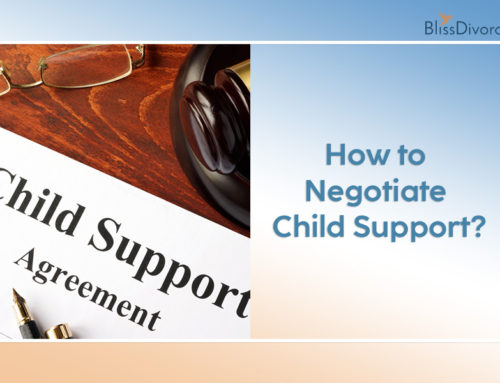Even the most amicable divorce can take its toll on your emotional wellbeing. How much more so for those of us going through contentious ones! Add to that the stresses of work, caring for family and keeping up with the daily news cycle, and it can leave us feeling overwhelmed.
A clear head helps with negotiations. It can keep amicable divorces amicable and make the less amicable ones easier to manage. Maintaining your composure may even tilt the scales of justice in your favor if you wind up going to court. Self-care may not be the first thing we think of when we think of divorce, but it is essential.

Source: shutterstock.com / Photo Contributor: Krakenimages.com
Practice self-compassion
Divorce may bring up feelings of anger and anxiety. You might be angry at your spouse. You might even be angry at yourself. These emotions take a toll on our bandwidth. Be gentle with yourself. If you knew that a friend was going through something difficult, you’d certainly understand if they couldn’t do everything they’d normally be able to. Try to extend that compassion to yourself. Remember that you can’t change the past. Stay focused on the future.
Be healthy
Eating, sleeping, drinking enough water, and getting exercise are all important parts of self-care. All of these things reduce stress and can help you think clearly. Exercise, in particular, is an excellent tool for managing stress.
Do things you love
With all the things to decide, consider, and do during a divorce, you may feel you don’t have time to do the things you love. However, we all need to find a way to get back what the hard work of divorce takes out of us. Be disciplined about setting aside time for doing what you love. Doing things that make you happy can help you to be calmer — and more productive — when you sit down to do more stressful tasks.
Stick to a routine
It’s common for people to take time off to deal with the nitty-gritty details of a divorce, or even to recover emotionally. Getting back to your routine can help reduce anxiety by making things feel “normal.”
Schedule time for your feelings
During a divorce, it can be tempting to put our emotions to one side to deal with all of the logistics. Even if you don’t focus on your feelings, they’re still there. Studies show that just taking the time to understand your feelings and put words to them can reduce that stress and relieve feelings of emotional pressure. So start to set aside time to understand how you feel.
One approach is stream-of-consciousness writing. Just write down every thought that pops into your head. It’s ok if, for the first few times, you can’t find the words. Keep the appointment, and the words will eventually come. You don’t need to show it to anyone. You can even shred the paper when you are done.
Whether you choose therapy, writing, art, meditation, or some other forum, giving your emotions a place and time prevents them from overwhelming you when you most need your composure.

Source: shutterstock.com / Photo Contributor: Zoteva
Reconnect with friends and loved ones
For many of us, getting married means devoting yourself to married life. As a result, we can find ourselves spending less time with other people in our life. Our spouse becomes our main sounding board and confidant. When we get divorced, many of us don’t know whom to talk to.
Reconnecting with the people in our lives who are most important to us can really help us to move on with our post-divorce lives.
*This article is for informational purposes only and is not intended to provide legal advice. If you require legal advice, please contact a licensed attorney in your local area.




